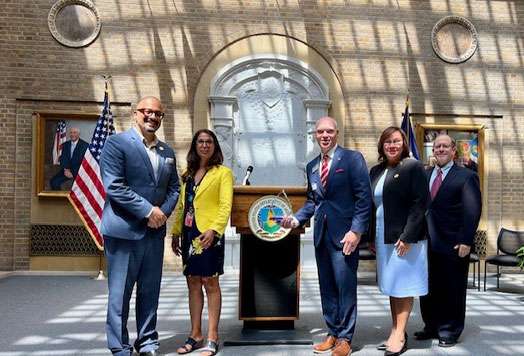Buying a house is a monumental decision that involves careful planning and significant financial commitment. The process can be daunting, but there's one crucial step that can make it smoother: getting pre-approved for a mortgage. Let's dive into why this step is essential and how it can benefit you in the long run.
Understanding Mortgage Pre-Approval
Before we get into the nitty-gritty of why pre-approval is vital, let's clarify what it is. A mortgage pre-approval involves a lender reviewing your financial situation—including your income, debts, and credit score—to determine how much they're willing to lend you. This process results in a pre-approval letter, which states the loan amount you qualify for, the interest rate, and the terms.
The Benefits of Getting Pre-Approved
1. Sets a Realistic Budget
One of the most significant advantages of getting pre-approved is that it sets a clear budget for your home search. Knowing how much you can borrow helps you focus on properties within your price range, saving you time and energy. Instead of looking at homes that might be out of reach, you can zero in on options that you can realistically afford, making your search more efficient and less stressful.
2. Increases Your Buying Power
In a competitive real estate market, having a pre-approval letter gives you an edge. Sellers and real estate agents often take pre-approved buyers more seriously because it shows you're financially prepared to make an offer. When sellers see that you're pre-approved, they're more likely to consider your bid over others, which can be especially beneficial in bidding wars. It demonstrates your seriousness and readiness to proceed with the transaction, giving you a leg up in negotiations.
3. Speeds Up the Buying Process
Once you find the perfect home, having pre-approval can speed up the buying process. Since the lender has already assessed your financial situation, finalizing the mortgage application and closing the deal can be quicker. This can be a significant advantage if you're in a hurry to move in or if the seller is looking for a fast transaction. With much of the groundwork already laid, you can avoid delays that might otherwise slow down the process.
4. Identifies Potential Issues Early
Pre-approval can uncover potential financial issues early in the home-buying process. If there are problems with your credit score or debt-to-income ratio, you'll have time to address them before you start house hunting. This proactive approach allows you to resolve any issues that might prevent you from securing a mortgage, ensuring you're fully prepared when it's time to make an offer. It gives you a clearer picture of your financial health and what you need to improve.
5. Provides Rate Locks
Some lenders offer the option to lock in an interest rate when you get pre-approved. This can protect you from rate increases while you're searching for a home, potentially saving you money over the life of your loan. With interest rates fluctuating, securing a rate early on can give you peace of mind and financial stability, knowing that your mortgage payments won't unexpectedly rise.
The Pre-Approval Process: Step-by-Step
Now that we've covered why pre-approval is crucial, let's walk through the process.
1. Gather Financial Documents
Lenders will require various documents to assess your financial health, including:
- Recent pay stubs
- Tax returns and W-2s
- Bank statements
- Proof of assets (savings, investments)
- Debt information (credit cards, loans)
Having these documents ready can streamline the application process and ensure you provide accurate and comprehensive information.
2. Research and Choose a Lender
Not all lenders are created equal, so it's essential to shop around. Compare interest rates, terms, and customer reviews to find the best fit for your needs. Consider both traditional banks and online lenders, as each might offer different benefits and terms that suit your situation better.
3. Submit Your Application
Once you've chosen a lender, submit your application along with the required documents. Be prepared to answer questions about your finances and provide additional information if needed. This step involves a detailed review of your financial history, so accuracy is crucial.
4. Receive Your Pre-Approval Letter
If your application is successful, you'll receive a pre-approval letter outlining the loan amount, interest rate, and terms. Keep this letter handy during your home search. This letter not only acts as proof of your financial readiness but also guides your budget and negotiations.
Common Misconceptions About Pre-Approval
1. It's the Same as Pre-Qualification
Pre-approval is often confused with pre-qualification, but they aren't the same. Pre-qualification is a preliminary assessment based on self-reported information, while pre-approval involves a thorough review of your finances by a lender. Pre-qualification gives you an estimate of what you might be able to borrow, but pre-approval is a more definitive statement of your borrowing power.
2. It Guarantees a Loan
A pre-approval is not a guarantee of a mortgage. Final approval depends on a full application review, property appraisal, and other factors. While pre-approval is a strong indicator of your ability to secure financing, it's not the final step. The property you're buying will also need to meet certain criteria, and your financial situation must remain stable until closing.
3. It Hurts Your Credit Score
While pre-approval involves a hard credit inquiry, which can temporarily lower your credit score, the impact is usually minimal. The benefits of pre-approval often outweigh this small downside. Additionally, multiple inquiries within a short period are often treated as a single inquiry by credit scoring models, minimizing the impact on your score.
FAQs About Mortgage Pre-Approval
Q: How long is a pre-approval letter valid?
A: Pre-approval letters are typically valid for 60 to 90 days, depending on the lender. This timeframe allows you to search for homes with confidence, knowing your pre-approval is still valid.
Q: Can I get pre-approved for a mortgage with bad credit?
A: Yes, but your loan options may be limited, and you might face higher interest rates. Improving your credit score before applying can help. Some lenders specialize in working with buyers with less-than-perfect credit, so explore all your options.
Q: Does pre-approval mean I'll get the exact loan amount stated?
A: Not necessarily. The final loan amount depends on the property appraisal and other factors during the underwriting process. The pre-approval amount is a guide, but the actual loan amount can vary based on the specifics of the property and final underwriting decisions.
Final Thoughts
Getting pre-approved should be the first step you take when buying a house. It sets a realistic budget, boosts your credibility with sellers, speeds up the buying process, and uncovers potential financial issues early. With these benefits, you're better positioned to navigate the competitive real estate market and secure your dream home.
Ready to start your home-buying journey? Begin with pre-approval and take the first step toward making your dream a reality.




